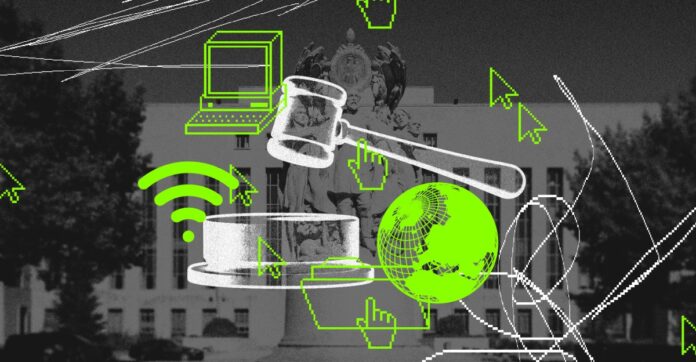The Future of the Internet
The future of the internet is being shaped in a single building in Washington, DC. For six weeks, the E. Barrett Prettyman Courthouse was abuzz with lawyers, reporters, and onlookers attending two of the most significant tech cases in the country.
The Cases
The courthouse hosted two long-running antitrust lawsuits: FTC v. Meta and US v. Google. Judges James Boasberg and Amit Mehta oversaw these cases, which aimed to determine whether Meta and Google had built illegal monopolies. The stakes were high, with the potential for these tech giants to be split up.
The Players
The witness box saw a plethora of high-profile executives, including Meta CEO Mark Zuckerberg and Google CEO Sundar Pichai. Other notable witnesses included former Instagram co-founder Kevin Systrom and executives from Microsoft and OpenAI. These individuals were testifying about the inner workings of their companies and the decisions that had led to their current market positions.
The Judges
The judges presiding over these cases had a daunting task. Judge Boasberg, in particular, had a full docket, overseeing not only the Meta case but also several other high-profile cases related to the Trump administration. Despite the pressure, Boasberg appeared even-keeled, demonstrating a deep understanding of the cases before him.
The History
The E. Barrett Prettyman courthouse has a history of hosting landmark tech cases. In 1998, it played host to the US v. Microsoft case, which determined that Microsoft had illegally wielded its dominance over the PC operating system market. This case led to a settlement, but it also marked a turning point in the government’s approach to regulating tech companies.
The Current Landscape
The tech landscape has changed dramatically in the past five years, with the rise of TikTok and generative AI. The zeitgeist around tech has also shifted, with a growing fear of foreign competition and a desire for more aggressive antitrust enforcement. The cases against Meta and Google reflect this shift, with the government seeking to ensure that these companies do not stifle innovation.
The Impact
The rulings in these cases will likely take months to arrive, and their fallout may not be seen for years. However, the testimony and evidence presented during the trials have already provided valuable insights into the decisions that shaped the tech world. The cases have also raised questions about the future of the internet and the role of tech companies in shaping it.
Conclusion
The future of the internet is being determined in a single building in Washington, DC. The cases against Meta and Google have the potential to reshape the tech landscape and ensure that innovation is allowed to flourish. As the judges deliberate and the government continues to regulate the tech industry, one thing is clear: the next decade will be crucial in determining the course of the internet and the companies that shape it. The question remains: will the doors be opened for new companies to rise, or will the giants of today continue to dominate the landscape? Only time will tell.

